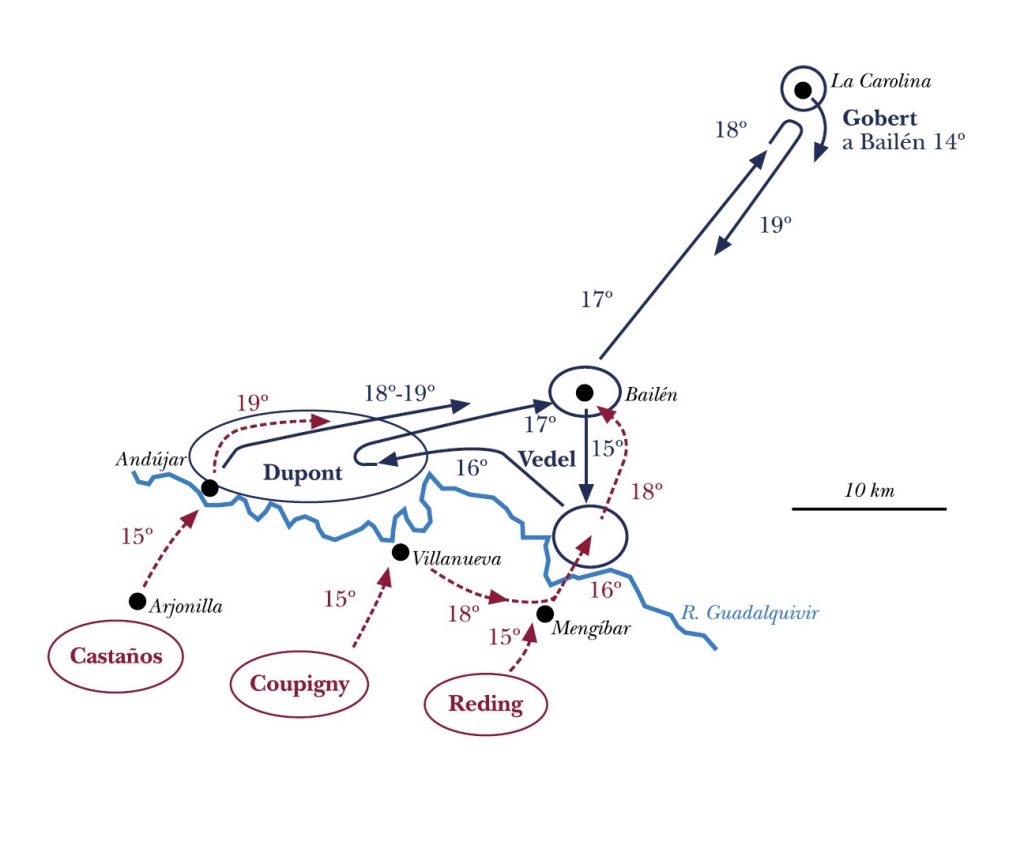Following Napoleon’s orders, General Dupont moved his troops from Vitoria to Cadiz to liberate a French fleet that had been held back. On his way through Córdoba, they were attacked by a small Spanish army, which Dupont manages to defeat, allowing his men to plunder the city as a reward.
Meanwhile, the fleet he was on his way to rescue was attacked, meaning that his journey now lacks an objective. Added to this, the recently created Supreme Provincial Council of Seville was militarising a significant number of troops, worrying Dupont, and putting a halt to his advance whilst he requested reinforcements from Madrid.
Days later, he fearfully retreated to Andújar, in order to await reinforcements in the form of Generals Vedel and Gobert. Whilst this was taking place, General Castaños was drawing up the so-called “Porcuna Plan” to attack Dupont’s army.
Not long before the historic event occurred, Castaños’ presence near Andújar put the wind up Dupont, who decided to retreat in the direction of Bailén on the night of 18th July. Dupont’s decision was motivated by the delicate situation in which he found himself: he had been left with no protection following a confrontation in Mengibar between a small number of General Reding’s men and troops under the command of Vedel and Gobert, causing the latter to flee to La Carolina and Santa Elena, such that Dupont risked being trapped between Reding and Castaños’ men.
Dupont’s fears were confirmed in the early hours of the morning of 19th July in Bailén, when his soldiers came across Reding and his men, who had camped there en route to Andújar, where the attack conceived in Castaños’ plan was due to take place.







